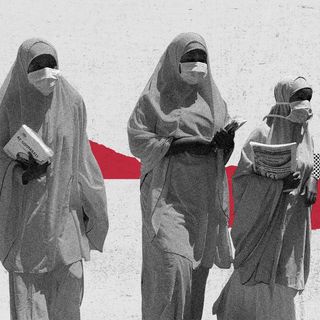As lockdowns ease across India, news headlines berating those who stepped out — probably for the first time in months — have flooded social media, eagerly bolstered by people calling them selfish, stupid, or a popular term coined during the Covid19 pandemic, ‘covidiots.’ The underlying implication is: it’s because of the utter idiocy, selfishness of these ‘covidiots’ that we’re seeing a Covid19 surge right now. A team of top U.K. scientists believes this criticism is not valid, and is taking away from the unified front we need in order to collectively handle the coronavirus pandemic.
It’s not people’s thoughtless behavior, selfishness, or lockdown fatigue that’s causing them to step out. In most cases, their reasons are not psychological, but practical, such as having to go to work, or back to their families. “Psychologizing disasters” — attributing arbitrary psychological explanations for people’s behaviors — “serves to distract from the real causes and thus from who might be held responsible,” the team of behavioral psychologists from the U.K. write in the British Journal of Social Psychology. They delineate three main reasons for Covid19 fatalities and the surge in cases, which are often always repeated throughout emergencies and disasters — “under‐reaction to threat, systemic factors, and mismanagement.”
Looking at India’s response to the coronavirus pandemic, the abovementioned reasons hold true — while early lockdown imposition has been called an over-reaction by some, experts believe the lateness of the Indian government’s admission of community transmission, a lack of immediacy surrounding testing and contact tracing under lockdown, and lack of adequate support for frontline workers, constitute an under-preparedness that has diluted India’s response to the coronavirus pandemic. Combine this with systemic issues such as poverty, and mismanagement of the migrant crisis, and a roadmap starts to appear for why we’re still struggling with rising Covid19 cases and fatalities.
Related on The Swaddle:
How Doctors Are the Unwitting, Frustrated Soldiers in the War Against Covid19
Blaming individual people — most of whom are simply attempting to get by, despite severe financial and mental stress — leads to division among communities that further detracts us from addressing systemic failures and holding the institutions we’ve entrusted to get us through this pandemic accountable.
This is not to say individual, and collective, psychological behaviors will not impact the outcomes of the coronavirus pandemic. Evidence shows that people in an emergency often opt for more cooperative behaviors and prioritize solidarity over selfishness, the scientists write. Take the wave of civilian campaigns and donations for migrants that have replaced the state’s non-existent relief measures, or the ongoing PPE donations private companies and entrepreneurs are making to hospitals all across India in light of the state’s shortage. Or take the longest ongoing cooperation of all — adherence to multiple lockdown extensions, often at the risk of jeopardizing one’s financial and mental health, despite the lack of reliable, consistent communication from the government and health institutions regarding the pandemic and the measures they’re taking to tackle it.
When institutions don’t, or are unable to, provide accurate, dependable information to the public, it leads to a drop in public trust, the scientists write, which is when cooperative behavior starts to wane. This often leads to non-compliance later, even when the institutions are providing accurate information. Be it the confusion surrounding the utility of masks, concerns raised over the Indian government trying to hide Covid19 data, or the messy ways in which lockdowns were implemented and extended, the institutions Indians rely on have largely failed to inculcate trust amidst the public. This, at least in part, is the reason for why many are seen flouting social distancing norms, not out of selfishness, scientists write.
Focusing only on the individual perpetuates the ‘disaster myth’ — every person for themselves, so to speak — which has time and again been proven to be false. Any deviation from the cooperation norm needs to be questioned systemically, scientists write. They add, “the irony, of course, is that, far from being the problem, collective psychology in emergencies – the solidarity and cooperation so commonly witnessed among community members and strangers – is usually the solution.”




